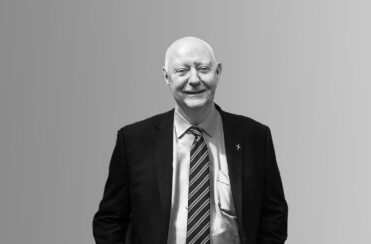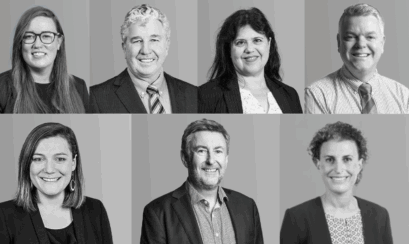In Australia, driving under the influence (DUI) and drug dealing are treated very seriously.
It is interesting to learn about other countries’ criminal justice systems and the differences in penalties and sentencing for such crimes. Sometimes, despite stark differences in countries’ values, cultures and criminal systems, the sentences are similar, while at other times they may seem particularly harsh by our standards.
While some who are charged and convicted in Australia for DUI or drug supply may feel they are treated unfairly by the significant penalties they receive, it may be worth sparing a thought for citizens who are convicted of such crimes in Far North Russia.
DUI is a criminal offence in Australia
Driving under the influence is a criminal offence. It can refer to driving under the influence of either alcohol or drugs.
If you are stopped for a random breath test or for suspected drink driving, the police will administer a BAC (Blood/Breath Alcohol Concentration) test. Returning a reading over the legal limit will result in action being taken against you.
What are the penalties for DUI In Australia?
The penalties differ across the different states and territories of Australia, as do the ranges of alcohol limits which determine the penalties you receive. Repeat offenders receive harsher penalties.
Penalties may include licence disqualification for a determined period, significant monetary fines, having your car fitted with an Interlock device, imprisonment, mandatory attendance of a Traffic Offenders Rehabilitation Program (TORP), and having your car impounded.
In addition, if convicted of drink driving or driving under the influence of the drugs, this will appear on your police record.
NSW introduces harsher penalties for DUIs involving both alcohol and drugs
In June 2021, the NSW government introduced harsh penalties for drivers found with both alcohol and drugs in their system.
These DUI penalties range from a $5500 fine and eighteen months in jail with licence suspension for those with low levels of alcohol and drugs in their system, to fines of up to $11,000 and a minimum three year licence suspension for repeat, high-level offenders.
DUI in freezing cold Dikson, Far North Russia
The port city of Dikson in Far North Russia is one of the world’s northernmost settlements, located on the Kara Sea, on the coast of Russia’s Arctic Ocean. Its population of 676 (as of the 2010 census) suffers through long, freezing winters and cold summers – by our Australian standards – with most days remaining below 10 degrees Celsius.
The website of Dikson has an auto-translate Russian-to-English facility, allowing us a glimpse of how familiar offences such as DUI, drug possession and drug distribution are treated on the other side of the world.
A recent DUI case in Dikson had the defendant charged under Article 264.1 of the Criminal Code of the Russian Federation – that is, for driving a car by a person in a state of alcoholic intoxication – and subjected to administrative punishment for driving a vehicle in that condition.
Court takes note of driver’s previous offences
The defendant’s guilt was proved in the court hearing.
It was established he had previously been brought to administrative responsibility under Article 12.26 of the Code of Administrative Offences of the Russian Federation – “Failure to Meet the Demand to Take a Medical Examination in Respect of Alcoholic Intoxication” – in 2019, and then again in April 2021, after he was observed driving a Mitsubishi Pajero in a state of alcoholic intoxication by the traffic police of the Ministry of Internal Affairs of Russia, in the Taimyr district.
The police stopped him after he initially attempted to flee the pursuit. The defendant was sentenced to compulsory labour for a period of 250 hours, with deprivation of the right to drive vehicles for a period of two years.
It would seem to a challenge to fulfil those community service hours, especially considering the difficulty of even leaving your home during the depths of the Russian winter.
No PCA test and no Interlock for repeat offender
As the defendant had prior convictions in 2019 and 2021, he seems to have been treated broadly similarly to what he would receive in NSW – however, without being ordered to have an Interlock device fitted to his car.
The other difference between Far North Russia and New South Wales in the treatment of the defendant was that in Dikson there was no PCA (prescribed concentration of alcohol) reading recorded by police. The driver was merely charged and convicted of DUI.
Drug dealing in Norilsk, Far North Russia
Norilsk is the world’s northernmost city, located 300km north of the Arctic Circle, and 2,400km from the North Pole. Like Dikson, its population endures extremely long and very cold winters. Unfortunately, it also has the title of the most polluted city in Russia and was included on the list of the ten most polluted places on earth in 2007.
A local resident of Norilsk was convicted of a particularly serious crime in the field of drug trafficking by the Norilsk City Court of the Krasnoyarsk Territory. The defendant, “P”, entered an organised criminal group consisting of at least four persons at the suggestion of a friend, “A”, to obtain income from criminal activities related to the trafficking of narcotic drugs.
The role of P was to follow the instructions of the curator, find caches with a narcotic drug, package them into small batches, place them in new caches and communicate their landmarks to the group members via group chat on the messaging service Telegram.
In February 2020, under the guidance of curators, P twice tried to sell narcotic drugs illegally in large quantities by using information and telecommunication networks.
Defendant’s term of imprisonment postponed until unborn child turns fourteen
P, who was unemployed and pregnant, was born in 1996 and so must have been 24 or 25 at the time of the offences. She was found guilty of committing two crimes under the Criminal Code of the Russian Federation, and was sentenced to imprisonment for a term of ten years. The actual serving of the sentence imposed on P was postponed until her unborn child reaches the age of fourteen.
The term of ten years may seem quite harsh by Australian standards for drug possession and distribution. However, it is interesting to note the particularly long-term outlook of Russia’s criminal justice system.
Suspending the defendant’s sentence until the child is born and reaches the age of fourteen is a novel approach and perhaps a way to prevent the drug cycle becoming inter-generational.
It would also be interesting to know whether the defendant could be released from the obligation to serve her prison sentence after the fourteen years if she has not undertaken any further criminal activities during that time.














